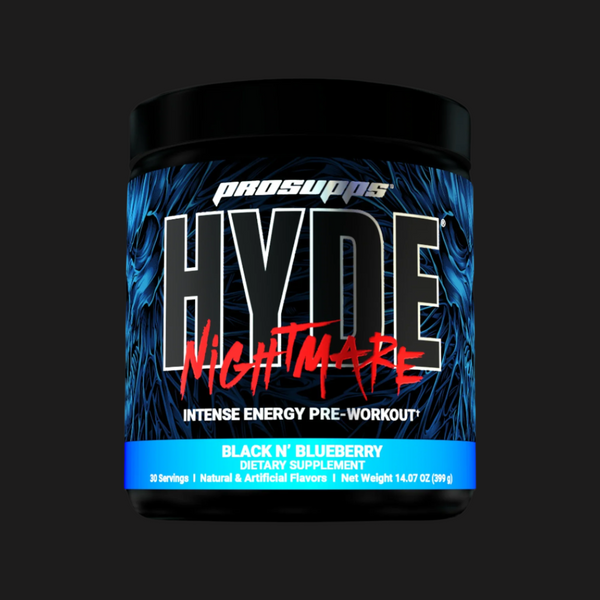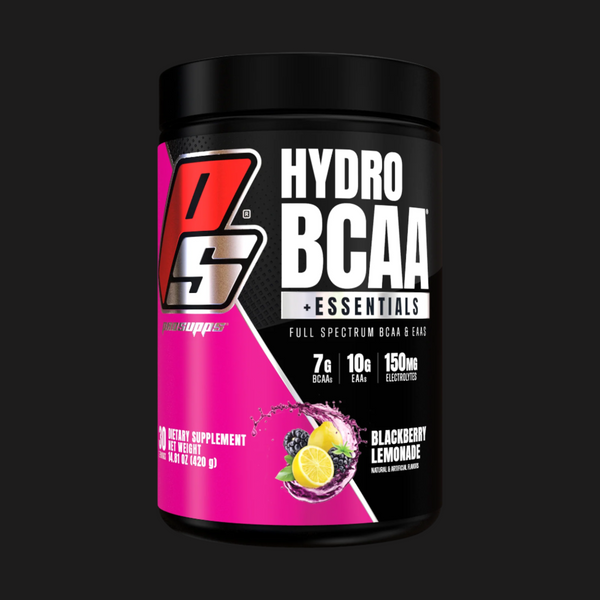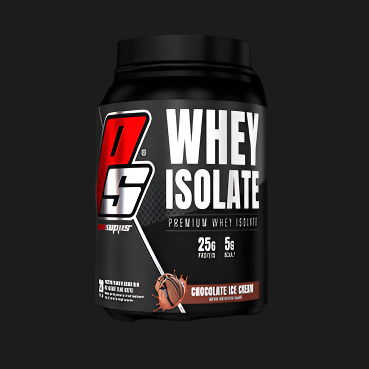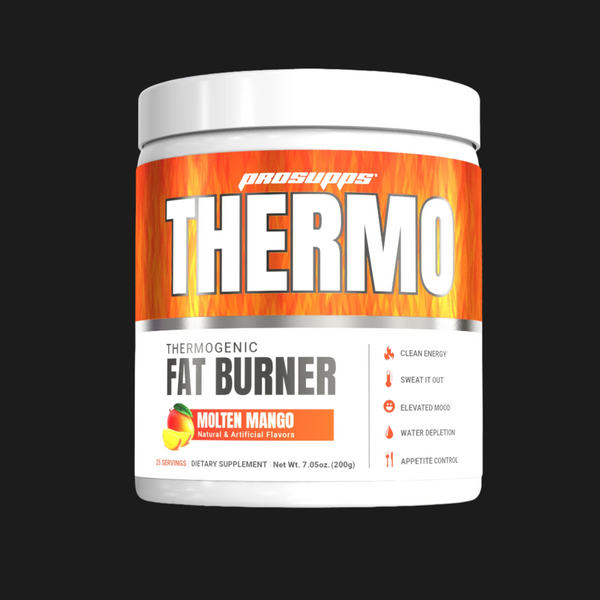What Does Beta-Alanine Do? Benefits & Tips
 Written by Pri Prunella
Written by Pri Prunella June 24, 2024
What Does Beta-Alanine Do?
Beta-alanine is a non-essential amino acid that plays a key role in muscle endurance during high-intensity exercise. Popular in sports nutrition, it helps increase carnosine levels in muscles, reducing fatigue and improving performance, making it a favored supplement among athletes and fitness enthusiasts.
What is Beta-Alanine?
If you are looking to increase your capacity to do high-intensity workouts or weightlifting, beta-alanine could be for you. Commonly found in meat sources, such as: beef, pork, lamb, chicken leg, beta-alanine can also be taken through pre-workout supplementation.
Beta-alanine is a unique non-essential amino acid that your body doesn't use to synthesize proteins. Instead, it combines with histidine to form carnosine, which is stored in skeletal muscles. Carnosine helps reduce the buildup of lactic acid during exercise, thereby enhancing athletic performance and delaying muscle fatigue. This allows you to exercise with greater strength and resistance!
If you partake in these sports, beta-alanine could be for you:
- Running
- Cyclists
- Rock climbers
- Power-weightlifting
How Does Beta-Alanine Work?
The last thing an athlete wants is to feel that they can't make it through the rest of their workout. Here is a step-by-step process of how beta-alanine works within the body to make the most of your working sessions!
1. Absorption: Beta-alanine is typically consumed through the diet or through supplementation -- such as pre-workouts! Once ingested, it is absorbed into the bloodstream and transported to various tissues, including skeletal muscle tissue.
2. Conversion to Carnosine: Inside the muscle cells, beta-alanine combines with another amino acid, histidine , through an enzyme called carnosine synthase. This forms carnosine. However, unlike histidine, which is typically abundant in muscle tissue, beta-alanine concentrations are more limited. Therefore, increasing beta-alanine intake can directly affect the production of carnosine.
3. Buffering Acid: Carnosine acts as an intracellular buffer in muscle cells, helping to regulate the pH levels during intense exercise. During high-intensity exercise, such as weightlifting or sprinting, the muscles produce hydrogen ions (H+ ions) as a byproduct of energy metabolism . These H+ ions can lower the pH of the muscle cells, leading to acidosis, which contributes to muscle fatigue and a decrease in performance.
4. Delaying Fatigue: By buffering the acidity within the muscle cells, carnosine helps to delay the onset of muscle fatigue during intense exercise. This allows athletes and individuals engaged in high-intensity activities to maintain their performance levels for longer durations before experiencing fatigue.
Beta-Alanine Benefits
Beta-alanine supplementation offers a range of benefits for athletes and fitness enthusiasts, supporting endurance, performance, muscle growth, and overall health.
Increased Endurance
Each person who partakes in exercise has a maximum duration for which they can exercise until failure -- this is “time to exhaustion” or TTE.
When consuming beta-alanine, athletes can train their bodies to increase their TTE during high-intensity workouts. This is due to the increase of carnosine in muscles, which acts as a buffer and slows down muscle fatigue. Essentially, the less we have to stop due to muscle fatigue, the longer we can exercise.
Enhanced Performance
Beta-alanine supplementation enhances performance by increasing the buffering capacity within muscle cells. This means that muscles can maintain a more stable pH level during high-intensity exercise, delaying the onset of fatigue and allowing athletes to sustain their effort for longer durations.
Imagine you're a competitive powerlifter training for a national championship. During your intense training sessions, you consistently aim to lift heavier weights and increase your overall strength. With the addition of beta-alanine supplementation to your regimen, you find that you're able to maintain peak power output for longer durations during your workouts. As a result, you're able to complete more sets and repetitions at higher intensities, leading to greater muscle stimulation and strength gains over time.
Lean Muscle Mass
Beta-alanine indirectly supports muscle growth by enabling individuals to train with greater intensity and volume, leading to enhanced muscle stimulation and hypertrophy over time when combined with resistance training.
Think of beta-alanine as a helper for your muscles when you're lifting weights or doing other types of strength training. When you take beta-alanine, it helps you push yourself harder during your workouts. You might be able to lift heavier weights or do more reps than usual. Over time, this extra effort can lead to your muscles getting bigger and stronger. So, beta-alanine doesn't directly make your muscles grow, but it helps you work out harder, which can lead to better muscle growth when combined with a good training routine.
Antioxidant and Anti-Aging Properties
Carnosine, synthesized from beta-alanine, serves as an antioxidant in the body, helping to protect cells from oxidative damage caused by free radicals.
Imagine your body is like a house, and inside that house are little cleaners called antioxidants. These cleaners help keep things tidy by getting rid of harmful stuff called free radicals. Free radicals can damage your body's cells and make you age faster.
Beta-alanine helps your body make one specific type of antioxidant called carnosine. When you have more carnosine in your body, it's like having extra cleaners to keep your house (or body) in better shape. So, beta-alanine might help slow down the aging process and keep you healthier for longer by giving your body more of these helpful cleaners.
How Much Beta-Alanine to Take?
The recommended dosage of beta-alanine varies depending on factors such as body weight, training intensity, and individual tolerance. However, a common dosage range for improving exercise performance is 2 to 6 grams per day.
To maximize the benefits of beta-alanine, it's often recommended to split the total daily dose into smaller servings throughout the day to avoid potential side effects like paresthesia
Consume Beta-Alanine Responsibly to Minimize Side Effects
It's important to start with a lower dose of beta-alanine and gradually increase it over time to allow your body to adjust and minimize the risk of side effects.
Additionally, timing your beta-alanine intake around meals can help reduce the likelihood of experiencing side effects like paresthesia. Paresthesia is a harmless tingling sensation or "pins and needles" feeling that some people experience after taking beta-alanine in higher doses. It typically affects the skin of the face, neck, and hands. The tingling sensation usually subsides within 30 to 60 minutes and is not considered harmful. However, it can be uncomfortable for some individuals.
Other common side effects and how to mitigate them:
- Gastrointestinal discomfort: Less common side effects of beta-alanine may include stomach cramps, nausea, or diarrhea. To mitigate these side effects, it's important to stay hydrated by drinking plenty of water throughout the day.
- Mild insomnia: Mild insomnia: This includes difficulty sleeping at night. Avoid taking beta-alanine before bed, and instead take it earlier in the day with food.
If you experience persistent or severe side effects, it's advisable to consult with a healthcare professional to determine the appropriate course of action, including adjusting the dosage or discontinuing use if necessary.
Beta-Alanine in Pre-Workout Supplement
Beta-alanine in pre-workout supplements enhances exercise endurance by increasing muscle carnosine levels, delaying fatigue, and improving anaerobic capacity.
Combining beta-alanine with other supplements like citrulline malate, creatine, and caffeine can optimize your pre-workout routine.
- Citrulline malate: Boosts nitric oxide production, improving blood flow to muscles and enhancing endurance and muscle pump.
- Creatine: Replenishes ATP stores, providing extra energy for intense exercise. Together, beta-alanine and creatine enhance overall performance and recovery.
- Caffeine: Increases alertness, focus, and energy levels during workouts. Combined with beta-alanine, it further enhances exercise performance and endurance.
Remember to always start with lower doses and monitor your body's response.
Choose the Best Beta-Alanine Supplement for You
Choosing the right beta-alanine supplement involves considering several factors:
- Purity and Quality: Look for supplements from reputable brands that undergo third-party testing to ensure purity and quality.
- Dosage: Check the dosage of beta-alanine per serving and ensure it aligns with your needs and tolerance levels. The typical recommended dose is around 2-6 grams per day.
- Form: Beta-alanine supplements are available in various forms, including capsules, powders, and pre-workout blends. Choose a form that is convenient and easy for you to consume.
- Ingredients: Consider whether you want beta-alanine as a standalone supplement or combined with other ingredients like citrulline malate, creatine, or caffeine for enhanced performance.
You can explore our pre-workouts that contain beta-alanine:
Hyde Signature 30: A moderate stimulant pre-workout formula designed to enhance energy, focus, and endurance.
Maximum Pumps Stack Stim-Free: A stimulant-free pre-workout blend formulated to support pumps, endurance, and focus without the use of caffeine.
Dr. Jekyll Signature: Caffeine-free pre-workout focused on enhancing focus and drive.
Before purchasing any supplement, it's advisable to read product labels, and reviews, and consult with a healthcare professional, especially if you have any medical conditions or are taking medications.
FAQs on Beta-Alanine
1. What is beta-alanine?
Beta-alanine is a non-essential amino acid that increases muscle carnosine levels, buffering acid buildup during exercise to delay fatigue.
2. How does beta-alanine benefit workouts?
Beta-alanine enhances endurance, delays muscle fatigue, improves anaerobic capacity, and increases overall exercise performance.
3. When should I take beta-alanine?
Beta-alanine can be taken pre-workout to maximize its benefits, but consistent daily supplementation is key to increasing muscle carnosine levels over time.
4. Are there any side effects of beta-alanine?
Some users may experience a harmless tingling sensation called paresthesia, especially at higher doses. Otherwise, beta-alanine is generally safe for most people.
5. Can I stack beta-alanine with other supplements?
Yes, beta-alanine can be combined with supplements like creatine, citrulline malate, and caffeine to enhance various aspects of workout performance.
References
-
MedlinePlus, Bethesda (MD): National Library of Medicine (US); (updated 2020 Jun 240). Heart attack; (updated 2020 Jun 10; reviewed 2016 Aug 25; cited 2020 Jul 1), https://medlineplus.gov/heartattack.html
-
Artioli GG; Gualano B; Smith A; Stout J; Lancha AH; (n.d.). Role of beta-alanine supplementation on Muscle Carnosine and exercise performance. Medicine and science in sports and exercise. https://pubmed.ncbi.nlm.nih.gov/20479615/
-
Derave W, Ozdemir MS, Harris RC, Pottier A, Reyngoudt H, Koppo K, Wise JA, Achten E. beta-Alanine supplementation augments muscle carnosine content and attenuates fatigue during repeated isokinetic contraction bouts in trained sprinters. J Appl Physiol (1985). 2007 Nov. https://pubmed.ncbi.nlm.nih.gov/17690198/
-
Harris RC, Tallon MJ, Dunnett M, Boobis L, Coakley J, Kim HJ, Fallowfield JL, Hill CA, Sale C, Wise JA. The absorption of orally supplied beta-alanine and its effect on muscle carnosine synthesis in human vastus lateralis. Amino Acids. (2006, Mar 24). https://pubmed.ncbi.nlm.nih.gov/16554972/
-
Laursen PB, Francis GT, Abbiss CR, Newton MJ, Nosaka K. Reliability of time-to-exhaustion versus time-trial running tests in runners. Med Sci Sports Exerc. (2007 Aug). https://pubmed.ncbi.nlm.nih.gov/17762371/
-
Hobson RM, Saunders B, Ball G, Harris RC, Sale C. Effects of β-alanine supplementation on exercise performance: a meta-analysis. Amino Acids. 2012 Jul;43(1):25-37. doi: 10.1007/s00726-011-1200-z. (2012, Jan 24). https://www.ncbi.nlm.nih.gov/pmc/articles/PMC3374095/
-
Ashtary-Larky D, Bagheri R, Ghanavati M, Asbaghi O, Wong A, Stout JR, Suzuki K. Effects of beta-alanine supplementation on body composition: a GRADE-assessed systematic review and meta-analysis. J Int Soc Sports Nutr. (2022, May 31). https://www.ncbi.nlm.nih.gov/pmc/articles/PMC9261744/
-
Stellingwerff T, Anwander H, Egger A, Buehler T, Kreis R, Decombaz J, Boesch C. Effect of two β-alanine dosing protocols on muscle carnosine synthesis and washout. Amino Acids. 2011, Aug 17). https://pubmed.ncbi.nlm.nih.gov/21847611/
-
Liu Q, Sikand P, Ma C, Tang Z, Han L, Li Z, Sun S, LaMotte RH, Dong X. Mechanisms of itch evoked by β-alanine. J Neurosci. (2012 Oct 17). https://www.ncbi.nlm.nih.gov/pmc/articles/PMC3491570/
GET LEAN
 Why You're Struggling
Can't Lean Out? Here's Why You're Struggling
Why You're Struggling
Can't Lean Out? Here's Why You're Struggling
We all know the feeling. You’ve been working hard in the gym, sticking to your diet and getting in your...
 Weight Loss
Choosing the Best Protein Powder for Weight Loss
Weight Loss
Choosing the Best Protein Powder for Weight Loss
Struggling to shed body fat and lean out? You might need to focus more on your nutrition, specifically your protein...
 Weight Loss
9 Ways to Speed Up Your Weight Loss and Burn More Fat
Weight Loss
9 Ways to Speed Up Your Weight Loss and Burn More Fat
Weight loss is a major goal for more than 40 percent of Americans. Is it something you’re working toward, too?
 Workout Routine
10 Tips for Building a Sustainable Workout Routine
Workout Routine
10 Tips for Building a Sustainable Workout Routine
Starting a fitness journey is an exciting time, but maintaining a sustainable workout routine can be challenging. From setting realistic...



























